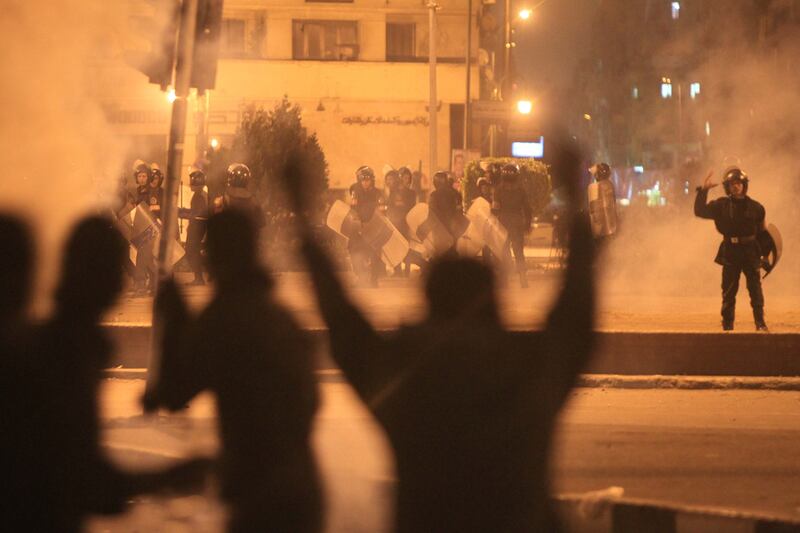The tumult that has rocked the Arab world has contributed to dramatic changes in the Arab public’s attitudes toward important global and regional powers. This is one of the findings of a recent Zogby Research Services poll of more than 7,000 adults in six Arab countries (Egypt, Lebanon, Jordan, Saudi Arabia, the UAE, and Iraq), plus Turkey and Iran.
The wide-ranging study, prepared for the annual Sir Bani Yas Forum, covered a number of topics. The poll asked respondents to identify obstacles to stability and sources of the conflicts in Iraq, Syria, Libya and Yemen. It questioned them about the causes of extremism and how best to deal with the threat posed by extremists. While all warrant examination, the shake up in the region’s positive and negative perceptions of the roles played by global and local powers is both fascinating and consequential.
In face-to-face interviews, conducted in late September and early October, ZRS found that Saudi Arabia is in an exceptionally strong position in the Arab world, while favourable attitudes toward Iran and Turkey continue to decline. These ratings and the mixed reviews given to the US and Russia define the turnaround that has occurred in recent years.
In 2006, the attention of most Arabs was focused on the continuing war in Iraq and American support for Israel’s destructive assault on Lebanon and its occupation policies in the West Bank and Gaza.
In that context, not surprisingly, attitudes towards the US were at their lowest ebb. With Iran’s president Mahmoud Ahmadinejad leading a war of words against the US, favourable attitudes towards Iran reached more than 70 per cent in most Arab countries and more than 85 per cent in Egypt and Saudi Arabia.
In 2009, Recep Tayyip Erdogan, Turkey’s then prime minister, publicly rebuked Shimon Peres, Israel’s president.
This behaviour brought about a spike in the Arab world’s assessment of Mr Erdogan and Turkey. After the Turks broke relations with Israel and continued to challenge its policies, their ratings rose even higher. Contributing to the Arab world’s positive assessment of Turkey were that country’s economic progress and what appeared to be its successful democratic experience.
Much has changed in the past decade. Iran’s meddlesome regional role has angered many Arabs causing a steep decline in its ratings. The “nail in the coffin” of Iran’s regional standing has been its support for Bashar Al Assad.
Even Lebanon, which continued to rate Iran favourably throughout the last decade, has now joined the rest of the Arab world in giving that country a net negative rating. It is also worth noting that in no Arab country does a majority see Iran as playing a positive role in the region or view it as important to have good relations with the government in Tehran.
Turkey has also taken a hit largely owing to that country’s bungled efforts to claim a regional leadership role and its drift toward authoritarianism. Once held in high esteem in every Arab country, now only Jordan and Lebanon give Turkey a net favourable rating.
While attitudes towards Turkey and Iran are in decline across the region, Saudi Arabia continues to receive the highest favourable ratings in all Arab countries and Turkey.
Majorities in all the Arab countries also see the kingdom contributing to peace and stability and view having good relations with Saudi Arabia as important – with a majority of Iranians also favouring good relations with the kingdom.
Both of the major global powers covered in this survey – the United States and Russia – fare quite poorly. They each receive a net positive rating in only one country: the US in Lebanon and Russia in Iran.
Neither the US nor Russia are seen as promoting peace and stability, and both receive mixed reviews in response to the question about the importance of having good relations with them.
The US scores high in just Lebanon, Jordan and the UAE, while only Egypt, Lebanon and Iran want good ties with Russia. Iraq is the one country where the US scores lowest in all areas. Only 6 per cent of Iraqis view the US favourably and see it contributing to peace and stability in the Middle East, and only 16 per cent of Iraqis say that it is important for their country to even have good relations with the US.
It is interesting to note the countries where attitudes towards the US actually improved (Egypt, Lebanon, and Jordan). The cause of both appears to be the administration’s lighter regional footprint.
Despite frequently heard complaints about the lack of US leadership, this concern is barely mentioned when respondents were asked about the sources of conflict and instability in hot spots, such as Iraq, Syria, Libya and Yemen. That’s the positive takeaway for US policymakers.
On the negative side, it is very clear that Arab attitudes towards the US are still deeply affected by the long, bloody and largely failed war in Iraq and the lack of trust in the US as an “honest broker”.
As a result, far from wanting more US leadership and involvement in regional conflicts, respondents in all eight countries see the US role, more often than not, as a source of problems to be avoided.
Dr James Zogby is president of the Arab American Institute
On Twitter: @aaiusa





